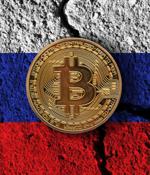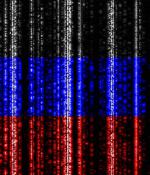Security News

Russia has floated the prospect of Putin a ban on cryptocurrencies. The Bank of Russia, the nation's central bank, yesterday published a Consultation Paper [PDF] titled "Cryptocurrencies: Trends, Risks, and Regulation" that ponders the impact of unbacked cryptocurrencies and stablecoins on Russia's economy.

The U.S. Treasury Department on Thursday announced sanctions against four current and former Ukrainian government officials for engaging in "Russian government-directed influence activities" in the country, including gathering sensitive information about its critical infrastructure. The agency said the four individuals were involved in different roles as part of a concerted influence campaign to destabilize the nation, while also accusing Russia's national security authority, the Federal Security Service, of recruiting Ukrainians in key positions to create instability.

The government of Ukraine on Sunday formally accused Russia of masterminding the attacks that targeted websites of public institutions and government agencies this past week. "All the evidence points to the fact that Russia is behind the cyber attack," the Ministry of Digital Transformation said in a statement.

In an unprecedented move, Russia's Federal Security Service, the country's principal security agency, on Friday disclosed that it arrested several members belonging to the notorious REvil ransomware gang and neutralized its operations. One of the most active ransomware crews last year, REvil took responsibility for high-profile attacks against JBS and Kaseya, among a string of several others.

Eight members of the REvil ransomware operation that have been detained by Russian officers are currently facing criminal charges for their illegal activity. On Friday, the Federal Security Service of the Russian Federation - the country's domestic intelligence service, announced raids at the homes of 14 individuals suspected to be part of the REvil ransomware gang.

Today, the Russian government announced that they arrested fourteen members of the REvil ransomware gang on behalf of US authorities. While the ransomware gang members are only being charged with "Illegal circulation of means of payment," the arrests are the first public action by Russia to stem the activities of ransomware gangs operating within the country.

Russia's internal security agency said today it had dismantled the REvil ransomware gang's networks and raided its operators' homes following arrests yesterday in Ukraine. Only yesterday five ransomware suspects were arrested in Ukraine, though their gang affiliations were not revealed by local police.

The Russian FSB has identified the entire criminal enterprise known as "REvil". Police raids on 25 addresses in at least Moscow, St. Petersburg, Moscow, Leningrad and Lipetsk.

More than a dozen members of the REvil ransomware group have been arrested courtesy of the Russian government. The Biden administration has been pressuring Russia to take ransomware and its perpetrators seriously, especially amid allegations that groups like REvil have operated with at least the tacit permission of the former Soviet Union.

A "Massive" cyber attack on Ukraine caught the world's eye this morning as the country's foreign ministry said its website, among others, had been taken down by unidentified hackers. Ukraine itself held off on attribution, with a foreign ministry spokesman telling the Reuters newswire it was too early to say who was responsible - but adding Russia has done similar things in the past.